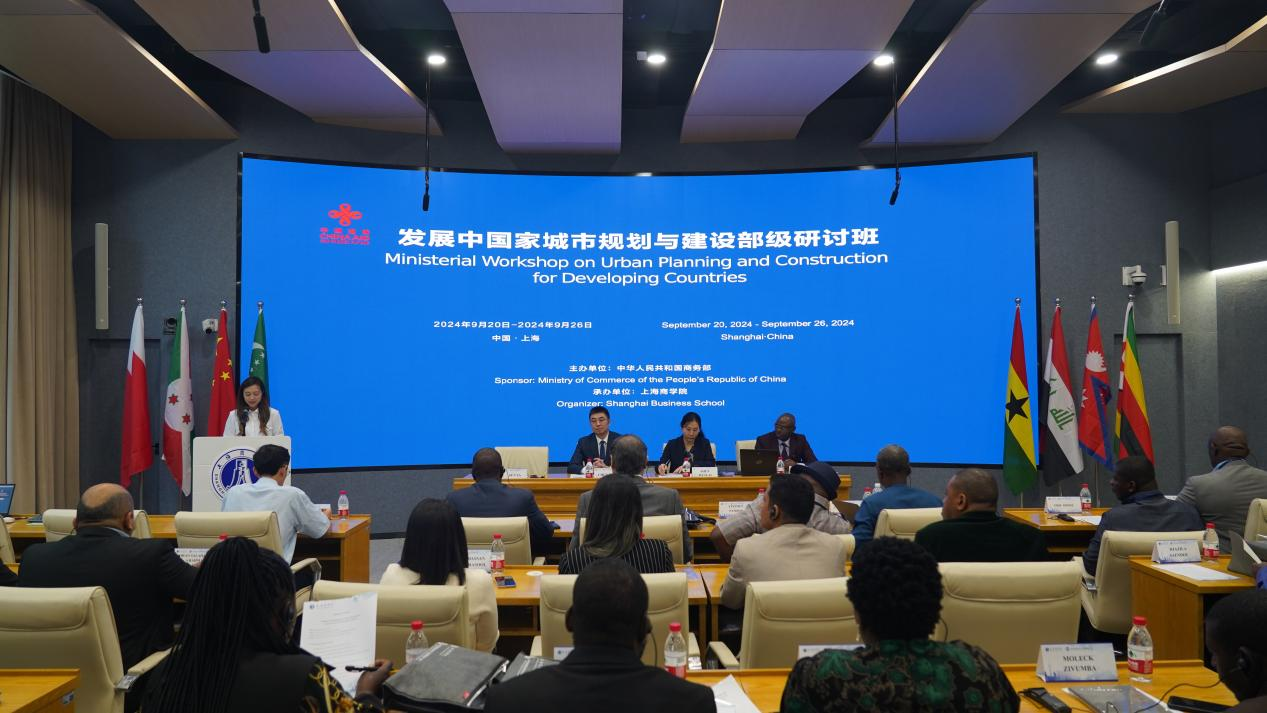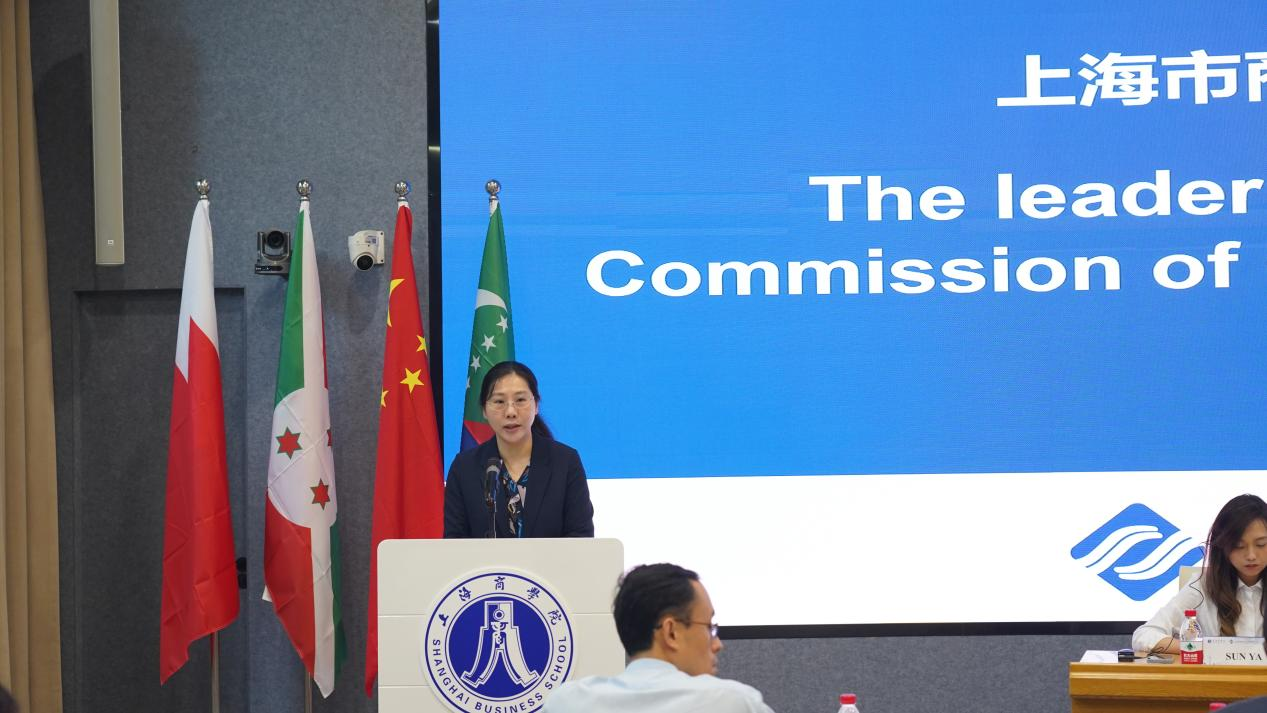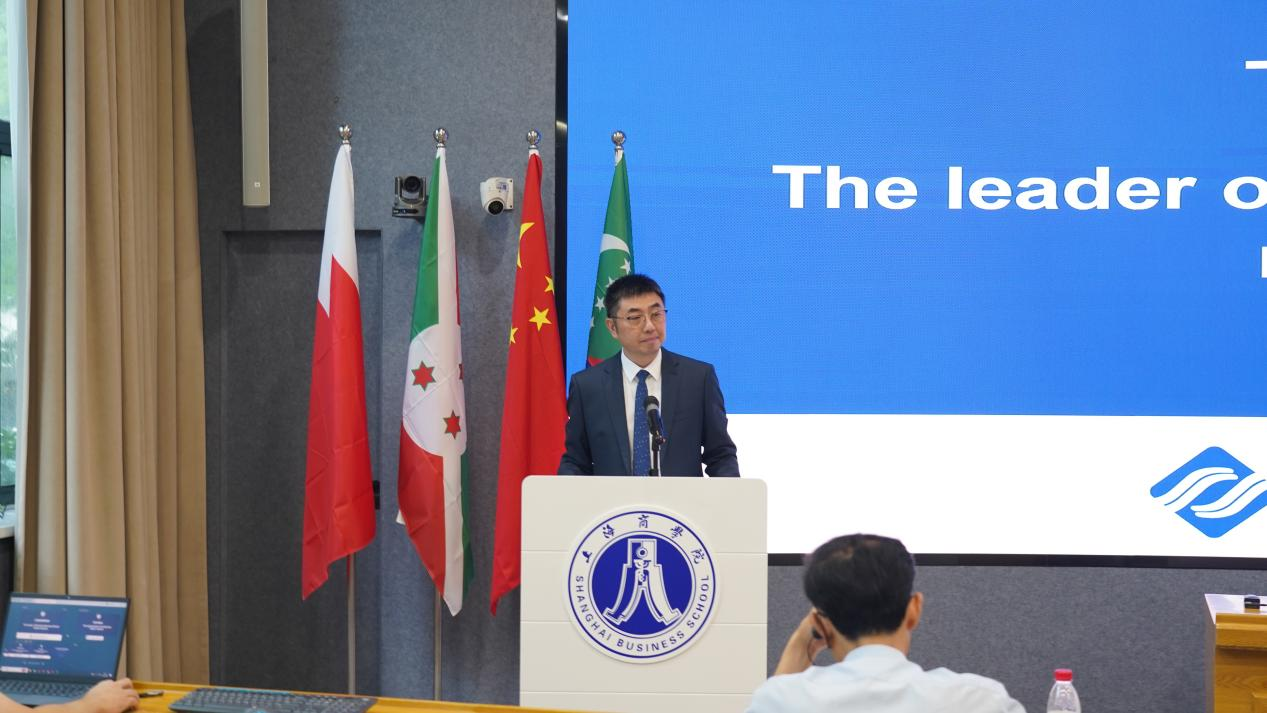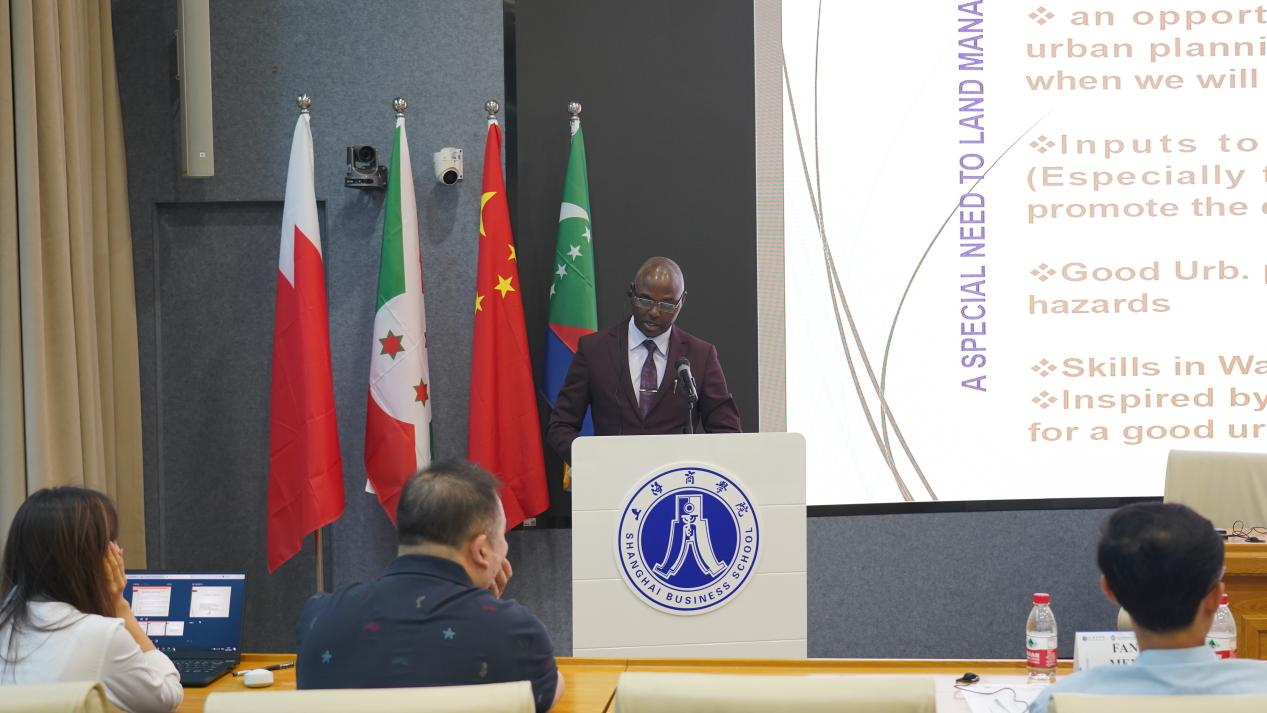On the morning of September 20, the opening ceremony of the Ministerial Workshop on Urban Planning and Construction for Developing Countries sponsored by the Ministry of Commerce and hosted by the MOFCOM Training Base for International Business Officials (Shanghai) of Shanghai Business School was commenced with great success. Shen Weilai, the Director of the Foreign Economic Cooperation Department of the Shanghai Municipal Commission of Commerce, and Chen Wei, the director of the MOFCOM Training Base for International Business Officials (Shanghai) attended the ceremony and delivered speeches.

Urban planning and construction serve as significant pillars for the development and civilization of a city, and they constitute the material foundation for the coordinated economic and social development of cities. They play a vital role in improving the human settlement environment, enhancing the overall urban carrying capacity, and raising urban operational efficiency. Guided by the vision of building a community with a shared future for mankind, this workshop aims to share China's relevant practices and experiences in urban planning and construction, provide a platform for exchange and cooperation to elevate the urban planning and construction standards and accelerate modernization of developing countries. In turn, we will embark on a new golden decade for the Belt and Road Initiative.

Ms.Shen Weilai noted that in recent years, China has accelerated the pace of urbanization and regional integration, and has made gratifying achievements in the comprehensive planning and infrastructure construction of cities. As China's largest economic center, Shanghai has always adhered to the people-centered approach, sustainable development, and the harmonious coexistence between man and nature in urban planning and construction. It focuses on improving the urban spatial resource environment and infrastructure, and continuously enhances the resilience and quality of the city. It is believed that the Shanghai experience can provide abundant cases for the workshop to discuss and draw lessons from.

Mr.Chen Wei pointed out that as the first super large city in China, Shanghai has leveraged national major strategies, taken technological innovation as the guide, driven by reform and opening-up, and ensured by modernizing urban governance. It has focused on the development of five centers, accelerated the construction of smart cities, implemented the concept of green urban development, and strengthened the interconnectivity among urban agglomerations in the Yangtze River Delta, thereby providing strong support for regional coordination development. He hopes that the participants can use the seminar as a platform to gain a firsthand understanding of China's urban planning and construction experience and achievements, and make new contributions to common development.

Delegates from the Burundi Urban Planning, Housing and Construction Bureau, Mr. LEONIDAS NIBIGIRA (deputy ministerial level), first introduced various challenges faced in urban development and the vision for urban development by 2040. He hopes that the exchange and discussion of the workshop will inspire the participating countries to improve urban planning and construction levels. Finally, on behalf of all the officials, he expressed sincere gratitude to the government of the People's Republic of China and the project organizer Shanghai Business School.
The workshop will last for 7 days, with 25 officials from 8 countries including Bahrain, Burundi, Comoros, Ghana, Iraq, Nepal, Tajikistan and Zimbabwe. Three of the participants are deputy ministerial officials. In the training course, officials will be arranged to visit Hangzhou City, Zhejiang Province.
Written by: Liang Bo
Photos by: Li Zheng
Reviewed by: Chen Wei